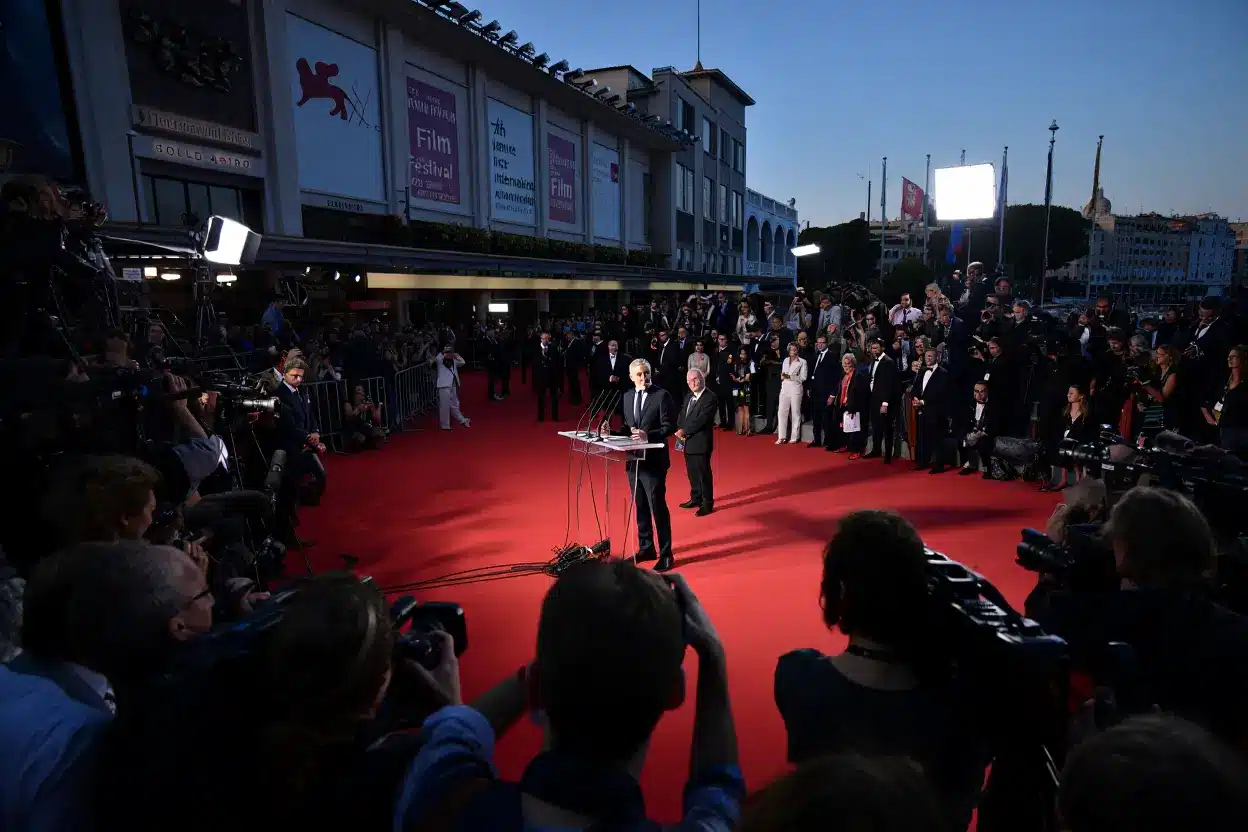“I think there’s no reason to boycott artists.” The line landed like a flare at Venice, igniting outraged reaction after an open letter signed by hundreds urged disinvitations — and leaving festivalgoers asking what matters more: art or politics? The speaker called for focus on the film itself, but the quote instantly reframed premieres, press rooms and red carpets as battlegrounds. Opinion: this risks turning every festival into a political minefield — or forcing clearer festival policies. How should fans and programmers respond when art and activism collide?
What This Viral Venice Quote Reveals About Festival Tensions 2025
- Director Rejected Calls To Disinvite Two Stars At Venice, Sept. 3, 2025.
- Open Letter Signed By Hundreds Urged Disinvitations Over Israel Support.
- Festival Chief Confirmed Stars Were Not Disinvited, But Both Were Absent.
- The Film “In The Hand Of Dante” Premiered Amid The Row, Diverting Coverage.
Why The “No Reason To Boycott” Line Became The Festival Flashpoint Today
4K Streaming Requires This – Not Just Fast Internet
Netflix Has 47 Hidden Gems With 100% Rotten Tomatoes Scores
The remark — repeated widely across social posts and press — instantly converted a press conference into a controversy generator. The director framed the comment as a plea to “talk about the movie,” yet the timing mattered: it followed a high-profile open letter urging Venice to take a stand. That juxtaposition turned a line about artistic merit into a viral talking point about solidarity, accountability and who gets a festival platform. Want to know why people reacted so strongly? Look at the next section.
https://twitter.com/xhassanv/status/1963241119908577606
Why Hundreds’ Open Letter And A 22-Min Standing Ovation Escalated The Clash
Pay for 2 Months, Watch for 12 – The Rotation Strategy Explained
Peacock Streams The Office Deleted Scenes Nobody Knows About
Two concrete facts sharpened the split: an open letter signed by hundreds of industry figures asked festivals to condemn the war and disinvite supporters; simultaneously, a Gaza-focused film earned a 22-minute standing ovation, amplifying emotional stakes. Those converging signals pushed activists and defenders into opposing camps: one side sees boycotts as moral pressure, the other sees artist-targeting as censorship. Which side are you inclined to defend — artistic freedom or collective accountability?
The Numbers Driving Venice’s Cultural Clash In 3 Quick Stats
| Indicator | Value + Unit | Change/Impact |
|---|---|---|
| Open-Letter Signatories | Hundreds (reported) | Amplified Festival Pressure |
| Standing Ovation Length | 22 min | Unusually Strong Emotional Response |
| Festival Edition | 82nd Venice (2025) | High-Profile Global Stage |
Festival pressure and audience fervor together made this a headline story at Venice.
How Industry Voices Reacted — From Support To Fury, Why It Matters
Reactions split quickly: some artists and commentators defended festival neutrality and artistic merit; others accused that position of ignoring human suffering. The remark became shorthand for that split: defenders argued festivals should showcase art regardless of politics; critics said visibility equals endorsement. That polarization is already shaping commentary threads, op-eds and red-carpet narratives — meaning future premieres may carry built-in PR risk, not just review risk. Are festivals ready to manage that fallout?
Who Said The Remark — And Why Julian Schnabel’s Voice Changes The Stakes
The speaker was director Julian Schnabel, who publicly dismissed calls to boycott artists at a Venice press conference on Sept. 3, 2025. Schnabel emphasized casting on “merits as actors” and urged focus on the film, not politics. His status as a celebrated filmmaker makes the line louder: when an established auteur speaks, outlets amplify it and social reactions cascade. That elevated platform helps explain why a single sentence shifted the conversation.
Why This Quote Could Reshape Festival Programming And Star Invitations By 2026
The immediate impact is reputational turbulence for festivals and PR headaches for invited talent. Expect organizers to tighten messaging and consider preemptive guidelines on political protests and guest appearances. For artists and audiences, the consequence is simple: red carpets will now come with political risk. Will festivals develop clearer policies — or will controversy become an attention engine?
What This 2025 Quote Means For Fans, Programmers, And Future Premieres
The line crystallizes a new reality: premieres are no longer neutral cultural moments — they’re public stages where politics, pain and promotion collide. Festival directors, studios and talent will face pressure to choose policies or be defined by absence. For readers: ask yourself whether you’ll let a controversy change what you watch — or whether you’ll demand clearer festival rules to separate art from endorsement. Which future do you want festivals to build?
Sources
- https://variety.com/2025/film/festivals/julian-schnabel-gal-gadot-gerard-butler-boycott-calls-venice-1236504298/
- https://www.washingtonpost.com/entertainment/movies/2025/09/04/voice-hind-rajab-gaza-movie/
- https://www.vulture.com/article/venice-film-festival-protestors-gaza.html
Similar posts:
- “I Feel A Little Bit Unprepared” Sparks 2025 Backlash at Venice: Here’s Why
- “There’s no reason to boycott artists” Sparks Festival Uproar: What Happens In 2025
- Pulitzer’s Seymour Hersh at Venice 2025: “He wants to not have another election” — what it means
- Artists Demand Answers After Sequoia-Linked $100M Investment — What Comes Next
- “I would be surprised” sparks festival showdown — What Aug 30 at Venice means next

Jessica Morrison is a seasoned entertainment writer with over a decade of experience covering television, film, and pop culture. After earning a degree in journalism from New York University, she worked as a freelance writer for various entertainment magazines before joining red94.net. Her expertise lies in analyzing television series, from groundbreaking dramas to light-hearted comedies, and she often provides in-depth reviews and industry insights. Outside of writing, Jessica is an avid film buff and enjoys discovering new indie movies at local festivals.

